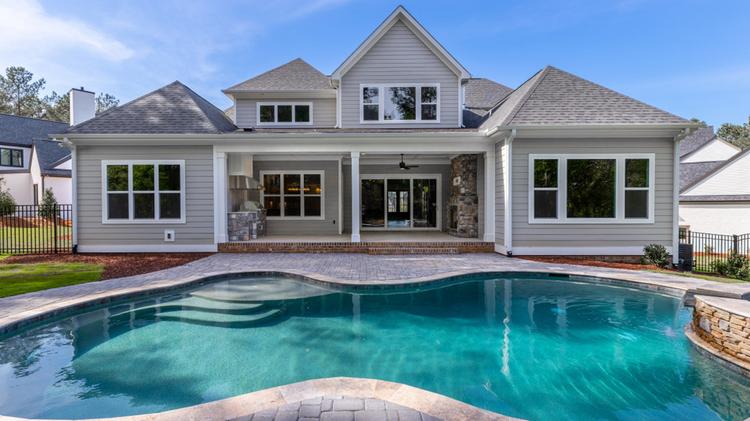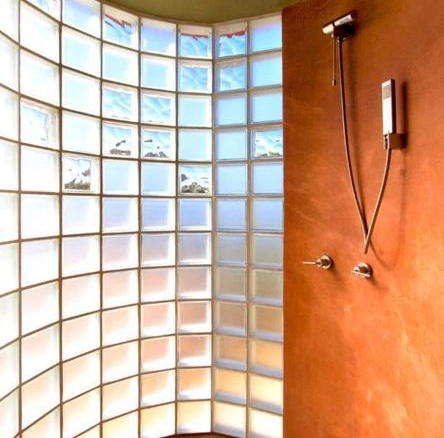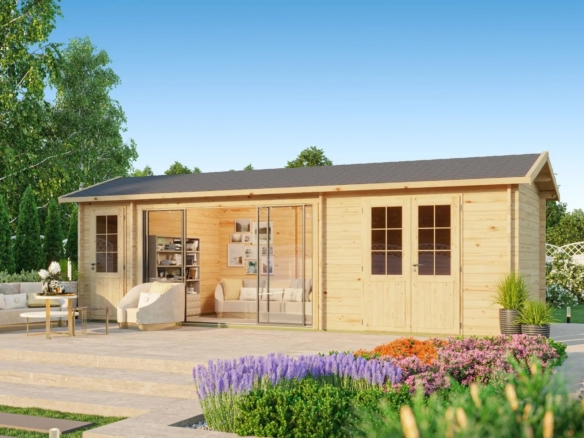Sipping coffee, looking out into your backyard and beyond at the gorgeous sunset, you feel yet again that something’s missing. You love your landscaped garden and your beautiful flowering shrubs. They keep you cool in the Dubai heat.
And yet, everything seems a bit dry. You know you want a water feature, and you’re half-convinced you want a swimming pool. In fact, you have a shortlist of swimming pool companies Dubai already on speed-dial.
Should you or should you not build a pool on your property?
Swimming Pools Generally Add Value to Real Estate
Can a swimming pool increase a real estate property’s valuation? It is an improvement, and real estate appraisers will count it for something. According to HGTV, a swimming pool can increase house valuation by 5-8%.
Of course, the actual effect it will have on your property valuation will depend on several factors, and location is one of the most important of such considerations.
Location Matters
According to the property brokerage firm Redfin, a swimming pool can add an estimated USD 95,393 to the price of a typical home in Los Angeles, CA, effectively adding a USD 56.45 premium per square foot to the property valuation. In Austin, Texas, a swimming pool adds approximately USD 52,228.18 to the typical home’s price or a premium of USD 28.67 per square foot.
Indeed, if you live somewhere warm, a swimming pool is likely to add value to your property. It’s a different narrative in cold-weather markets. In cities with cold climates, swimming pools will have to be heated, and the cost of heating a swimming pool can be considerable.
The data from Redfin bears this out. In Boston, with its cold and snowy winters, a home with a pool sells for an average of USD 15,484 less than a similar property without a swimming pool.
The location also matters one other way. If a swimming pool is a norm in your neighborhood, installing a swimming pool is a strategic decision. A house without a swimming pool in a community where most homes have a swimming pool is a harder sell.
Market Segment
A swimming pool’s effect on a property’s valuation also depends on the demographic to which you’re marketing the property.
According to Redfin, homebuyers in the US expect a house priced at USD 700,000 to USD 1 million to have a swimming pool. Thus, in the luxury market, especially in properties that come with large spaces, a swimming pool will increase the property’s value.
In contrast, swimming pools detract from the value of a property in the affordable housing market segment. Homebuyers looking for function, utility, and value for money probably don’t want to be saddled with the cost of maintaining a swimming pool.
Swimming pools are also known to discourage buyers with young children, to whom a swimming pool might present a hazard. However, a swimming pool can be attractive to empty nesters and families with older children.
Location + Market
Put the above location and market considerations together to determine whether or not a swimming pool will help your property appreciate in value.
To illustrate, suppose you live in a villa set on a spacious lot in an exclusive, gated community located in an affluent neighborhood in Dubai. In this case, a swimming pool will probably add to rather than detract from the value of your property.
Of course, the pool type, how good the finished pool looks, and the quality of the construction also matter. Thus, make sure to give the job to one of the construction companies in Dubai that specialize in swimming pool construction.
This will ensure that your swimming pool project will be done properly and correctly, and your swimming pool will increase your property’s value as expected.
Property valuation considerations aside, if you want a swimming pool and can afford to install and maintain it, go right ahead and do it. Why not, especially if you are not planning to move and put your house in the market anytime soon?
Types of Swimming Pools
After deciding on installing a swimming pool, it’s time to decide on the type of swimming pool you will build.
Above-Ground or In-Ground
There are two main categories of swimming pools: above-ground or in-ground. Above-ground swimming pools are built on top of the ground. Think of it as a giant basin placed in your yard, filled with water, with landscaping and a deck added. That’s the above-ground pool in a nutshell.
Above-ground pools are considered temporary swimming pools because, generally speaking, you can disassemble them and put them up somewhere else, say, when you move.
On the other hand, in-ground swimming pools are pools installed by excavating the ground, then lining the void with concrete, vinyl, or fiberglass, among other materials. Then water, landscaping, decking, and all other accoutrements are added.
In-ground pools are permanent options because they become a permanent fixture of the land unless filled in and covered.
Between above-ground and in-ground swimming pools, the latter has more design options, integrates better with the existing landscape, and is more likely to increase a property’s valuation. However, the former is more affordable and less complicated to install.
Indoor or Outdoor Pool
Typically, homeowners build swimming pools outdoors. This reflects one of their main uses, that of a water feature in landscaped yards and gardens.
You build an indoor pool like any other pool, but you erect walls and a roof around it. Of course, you may also install a swimming pool inside an existing structure.
Indoor pools are particularly appropriate in colder climes. The insulation offered by the walls and roof brings down pool heating costs.
Indoor pools can also be useful in warm-weather locations. In Dubai, for instance, indoor pools can provide a welcome respite from the city’s punishing summers.
Indoor pools are also a good option for those who swim regularly for exercise. Since a roof and walls shelter them from the elements, you can use them whether it is hot, cold, or wet outside.
Ready for Your Swimming Pool?
Installing or building a swimming pool on your property requires thought and planning. A swimming pool will alter your landscape, cost you a significant amount of money, and require care and attention throughout its useful life to maintain.
But other considerations aside, if you can afford it, a swimming pool will undoubtedly make an excellent addition to your property.
AUTHOR BIO
Rachel Hennessey manages the Pools and Landscaping Division of Hennessey LLC. She also works on Tender and Pre-Qualification and brings in new business to the company’s Construction, Interiors and Civils Division.




